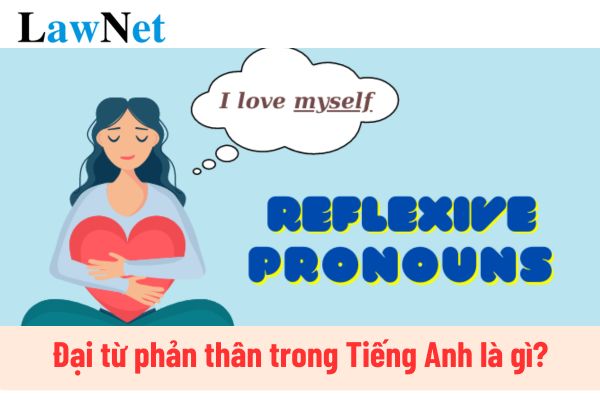Vietnam: What are reflexive pronouns in English? Are lower secondary school students required to know reflexive pronouns in English?
What are reflexive pronouns in English?
Reflexive pronouns in English are used to refer back to the subject of the sentence, meaning the action is performed by the subject on itself. They are often used to emphasize the action or to indicate that an action is performed by the person on themselves.
|
What are reflexive pronouns in English?
|
*Note: Information is for reference purposes only./.

What are reflexive pronouns in English? Are lower secondary school students in Vietnam required to know reflexive pronouns in English? (Image from the Internet)
Are lower secondary school students in Vietnam required to know reflexive pronouns in English?
According to Section 5 of the General education program in English issued with Circular 32/2018/TT-BGDDT, lower secondary school students in Vietnam must master the following language knowledge in English:
| Phonetics | The phonetics curriculum at the secondary level includes simple vowels, diphthongs, semi-vowels, consonants, consonant clusters; word stress, sentence stress, basic rhythm, and intonation. |
| Vocabulary | The vocabulary curriculum at the secondary level includes common words expressed in both spoken and written language related to the themes and topics in the Program. The number of vocabulary words prescribed at the secondary level is about 800 - 1000 words at Level 2 (excluding words learned in primary school). |
| Grammar | The grammar curriculum at the secondary level continues to consolidate and expand on the content learned in primary school and includes structures to develop communication skills at Level 2 such as declarative sentences, questions, imperatives, exclamatory sentences, affirmative sentences, negative sentences, simple sentences, compound sentences, conditional sentences (type 1), relative clauses, simple present tense, present continuous tense, simple past tense, past continuous tense, simple future tense, near future tense, modal verbs, infinitive verbs, gerunds, participles, countable nouns, uncountable nouns, possessive form of nouns, ordinal numbers, adjective comparison, demonstrative pronouns, interrogative pronouns, relative pronouns, reflexive pronouns, possessive pronouns, prepositions, adverbs, conjunctions, definite articles, indefinite articles... |
Thus, reflexive pronouns are part of the language knowledge in the general education program for English at the lower secondary level. Therefore, lower secondary school students need to know reflexive pronouns in English.
What are the rights of lower secondary school students in Vietnam when attending school?
According to Article 35 of the lower secondary school, upper secondary school and multi-level school charter issued by the Ministry of Education and Training with Circular 32/2020/TT-BGDDT, lower secondary school students will have the following rights:
1. Receive comprehensive education with fairness, be provided with time, facilities, hygiene and safety to learn in class and self-learn at home, be informed of their education and training, and be able to use learning, cultural and sport equipment of their schools as per the law.
2. Receive respect, protection and fair and democratic treatment, complain to their schools and education authorities about decisions concerning themselves; transfer school with legitimate reason as per existing regulations; enter school before the compulsory starting age, skip a grade and study at an age higher than the compulsory attendance age according to regulations in Article 33 of Circular 32/2020/TT-BGDDT.
3. Participate in activities for development of their gifts in academic subjects, sports and art organized by their schools if able to.
4. Students eligible for social benefits, disadvantaged students and gifted students may receive sponsorship or other benefits as per the law.
5. Transfer school if eligible according to regulations following school transfer procedures stipulated by the Minister of Education and Training.
6. Enjoy other rights as per the law.

